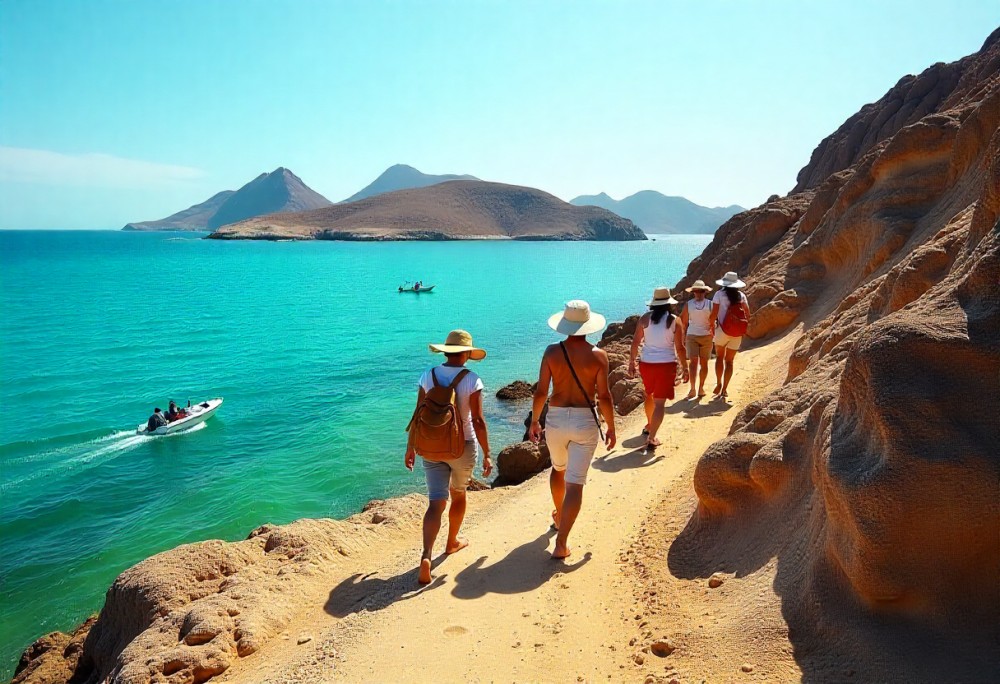≡-Indonesia to Limit Visitors at Komodo National Park to Protect Padar Island from Overtourism and Preserve Natural Heritage – Viral of Today
<> Viral of Today <>
Home » TOURISM NEWS » Indonesia to Limit Visitors at Komodo National Park to Protect Padar Island from Overtourism and Preserve Natural Heritage Published on
August 29, 2025Indonesia said it would tighten the tourist quota system on Padar Island, a crown jewel of Komodo National Park, in East Nusa Tenggara. The move is an expression of government increasing awareness that tourism, although crucial for economic growth and people’s livelihoods, should be carefully controlled to prevent degrading delicate environments.Forestry Minister Raja Juli Antoni emphasized this balance, stating, “There can be tourists because they provide welfare for the locals, so there are advantages. But it should not disturb the ecology. So it needs to strengthen the quota system of Padar.”A Move Towards Responsible EcotourismIn recent years, Padar Island has experienced overcrowding, driven by its Instagram-famous panoramic viewpoints and its reputation as a gateway to the home of the Komodo dragon. While this surge in visitors has boosted local businesses, it has also raised concerns about environmental degradation, habitat disturbance, and safety risks for both tourists and wildlife.Protecting Tourism’s Long-Term FutureThe Indonesian government’s move is not about reducing tourism but safeguarding its sustainability. By regulating the number of visitors, authorities aim to preserve the natural beauty of Padar Island while ensuring that the Komodo dragon — the park’s most iconic resident — continues to thrive.Tourism is one of Indonesia’s fastest-growing sectors, contributing significantly to GDP and providing income for thousands of families in East Nusa Tenggara. Yet, officials warn that without strict conservation policies, the very assets that attract travelers — pristine landscapes, biodiversity, and cultural heritage — could be permanently damaged.Strengthened Safety and Conservation EffortsBeyond limiting visitor numbers, Indonesia is rolling out new safety and conservation measures on Padar Island. These include the installation of fences and signboards around steep cliffs and sensitive areas, ensuring that the island remains safe for visitors while minimizing ecological disruption.The government also plans to increase coordination with local volunteers, empowering them to guide tourists, protect wildlife, and serve as stewards of sustainable tourism. This community-driven approach aligns with global best practices in ecotourism, where local participation is seen as essential for long-term conservation success.Development Plans Face ScrutinyWhile Indonesia works to manage tourist flows, debate continues around a controversial plan to develop luxury tourism facilities in Komodo National Park. The project, proposed by PT Komodo Wildlife Ecotourism, includes the construction of hundreds of villas on Padar Island.Local residents and business owners have raised strong objections, warning that large-scale development could damage the environment, threaten local livelihoods, and compromise the park’s status as a UNESCO World Heritage Site. Critics argue that the project risks turning a globally significant conservation area into a commercial resort zone.Komodo Dragons: Indonesia’s Living TreasureAt the heart of this debate lies the Komodo dragon, a rare species found only in Indonesia. Growing up to three meters long, these giant lizards are top predators with venomous bites, playing a critical role in the island ecosystems they inhabit.The Komodo dragon is listed as endangered, and its population is under strict protection. Islands such as Komodo, Padar, Rinca, Flores, and Gili Motang remain some of the last strongholds of this ancient species. For Indonesia, the dragon is not only a natural treasure but also a global tourism magnet, drawing thousands of visitors each year who seek to witness the reptile in its natural habitat.UNESCO’s Role in Safeguarding the ParkAs a UNESCO World Heritage Site, Komodo National Park is recognized for both its biodiversity and cultural significance. This status places it under the watchful eye of the international community, ensuring that conservation remains a top priority.UNESCO reviews are particularly critical in evaluating new development proposals. Any construction project deemed harmful to the park’s ecology or heritage could face rejection, preserving the park’s integrity for future generations.This global oversight strengthens Indonesia’s case for promoting sustainable tourism, positioning the country as a leader in balancing economic growth with environmental stewardship.Local Communities at the Center of ChangeFor the people of East Nusa Tenggara, the future of Padar Island is about more than conservation — it’s about livelihoods, identity, and opportunity. Tourism provides income for guides, boat operators, homestays, and small businesses. Many locals view the tightening of quotas not as a restriction, but as a long-term investment in ensuring that tourism remains viable for decades to come.Community groups have also taken an active role in conservation, from volunteering as guides to monitoring wildlife. Their involvement ensures that policies are not just imposed from above but are shaped by those who live closest to the land and sea.The Future of Tourism in IndonesiaIndonesia’s move to have Padar Island tourism regulated underscores a larger trend: international travel’s shift towards responsible, experiential travel. Authenticity, conservation, and sustainability are becoming major attractions for travelers today.If handled correctly, the Komodo National Park can be a template of ecotourism — a destination that tourists can visit to marvel at the natural beauty without destroying it. Through conservation of the habitat of the Komodo dragon, involving local communities, and stringent control of development, Indonesia can create itself as a world leader in environmentally friendly tourism.
This information will surprise you!
See also
- Read until the end to discover everything.
- Important information you need to know.
- Interesting facts and helpful tips.
Conclusion
Did you enjoy the news? Keep following us daily!













